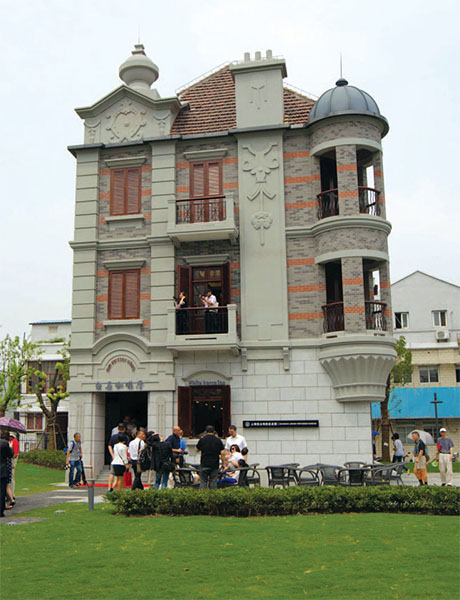

 |
|
Visitors checking out the new White Horse Inn. PHOTO BY GAO ERQIANG / CHINA DAILY |
The Jewish exodus
After assuming power in 1933, Hitler introduced his anti-Semitic policies, a central tenet of Nazi ideology that served to alienate Jews and drive them out of Germany via hundreds of restrictive regulations.
The situation exacerbated in March 1938 when Germany annexed Austria, home to almost 200,000 Jews at that time. A few months later on November 9, an escalation of anti-Semitic sentiment culminated in the destruction of Jewish shops and synagogues in Germany and Austria. The incident was dubbed "Kristallnacht", or the "Night of Broken Glass."
In order to escape the Nazi regime, Jews had to submit proof of emigration such as an entry visa or a ship ticket. As most of the participating nations at the Evian Conference in July 1938 had refused to increase their immigration quotas, Shanghai - which required no entry documents at that time - became the only destination left for fleeing Jews.
"When the doors of the most enlightened nations in the world were closed to the Jews, only one safe haven was open, and that was Shanghai," said Arnon Perlman, Israeli consul-general in Shanghai.
But the Jews who made it to Shanghai soon discovered that their woes were far from over.